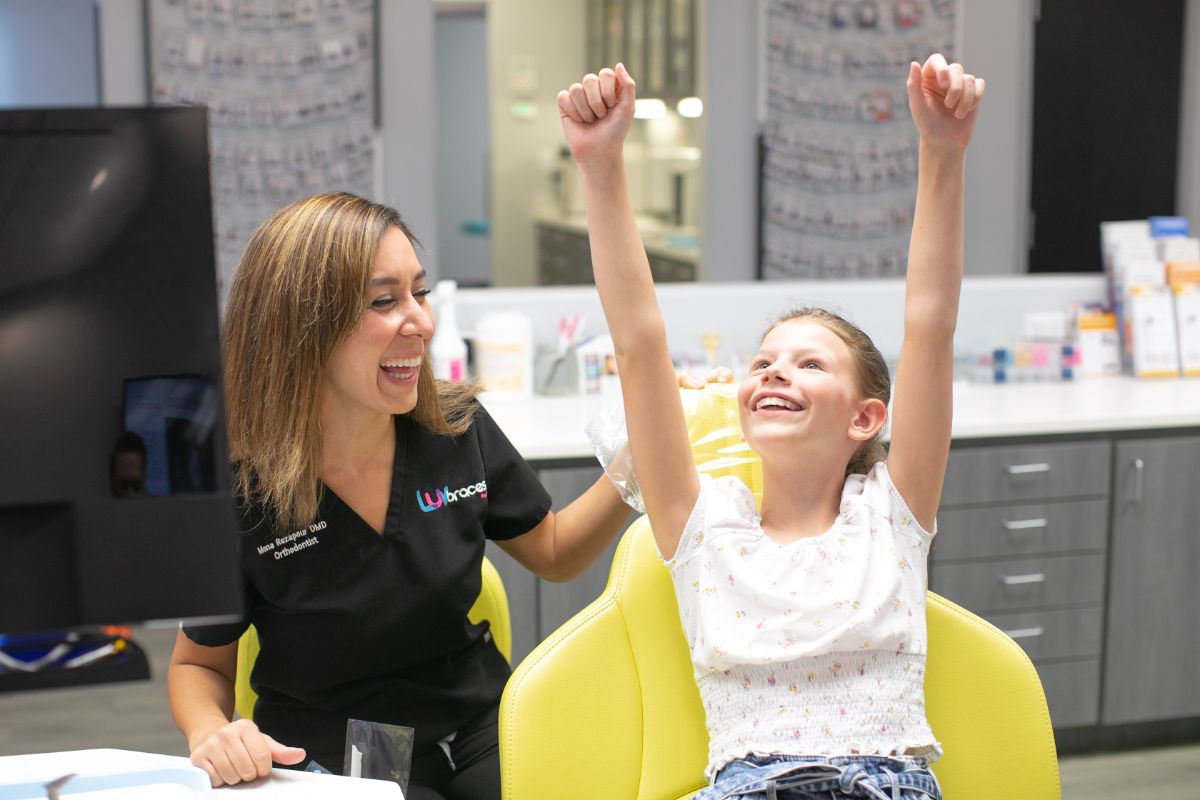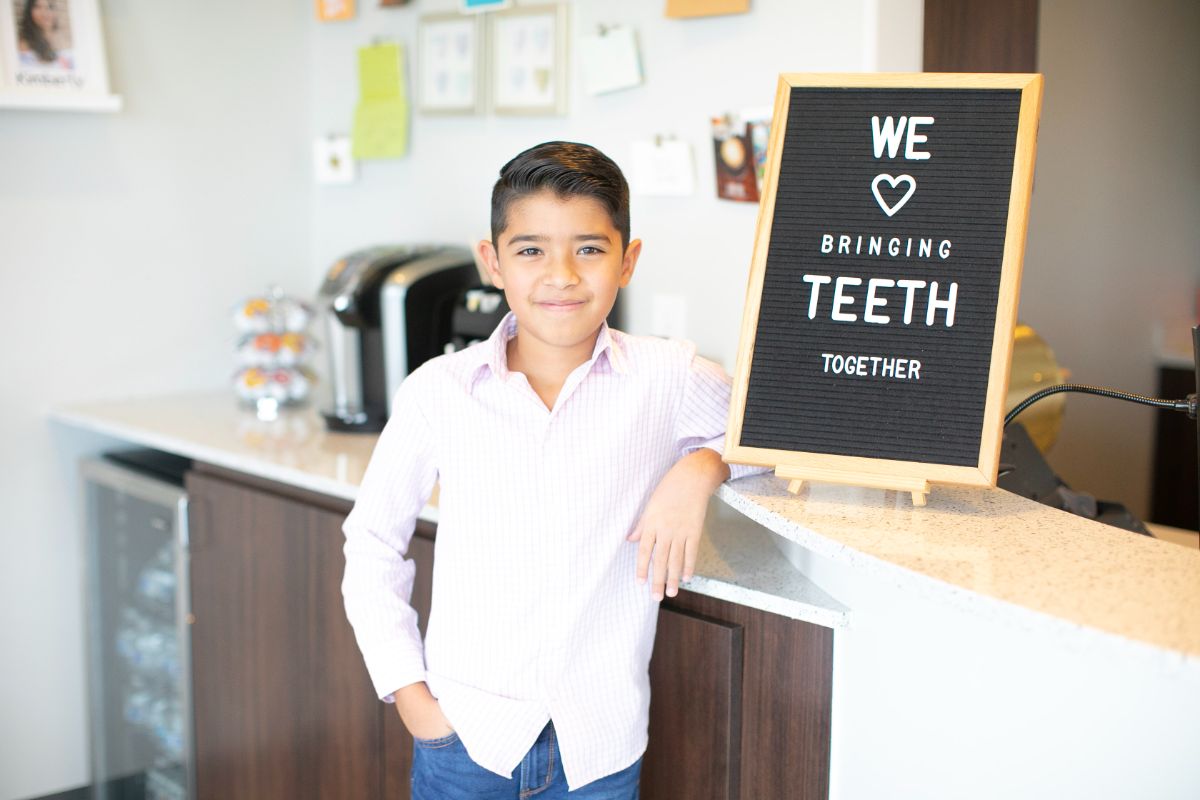When it comes to family-focused care in the Austin area, you can’t beat Luv Braces! Because our practice offers both orthodontics and pediatric dentistry, we’re constantly handing out advice on everything from foods that are safe for braces to how patients can maintain a healthy smile. When it comes to the latter, there’s one simple tip that matters more than almost any other: develop a good oral hygiene routine and stick to it!
Even if you’re not an orthodontic patient, it’s not a bad idea to examine how effective your dental hygiene is every now and then. Recommendations can change over time, after all, and you don’t want to miss out on helpful information that could improve your oral health! What doesn’t change, however, is the importance of brushing, flossing, and avoiding any bad oral habits that could be harming your smile.
With that in mind, let’s take a look at some of those habits, how they can damage your teeth, and why breaking them can give you a stronger smile!
Putting very little effort into your oral health
Before you think we’re advocating not even doing the bare minimum, let us reassure you—a quick brush after you roll out of bed and another one before you roll back in is certainly better than nothing! But the truth is, brushing and flossing daily is just the first step towards keeping your smile healthy. When you get down to it, how you care for your teeth is almost as important as how often you brush and floss.
We recommend using a soft-bristled toothbrush and fluoridated toothpaste, brushing at least twice a day for two minutes each time. Flossing every night will help remove stubborn food particles from dinner and get rid of sticky plaque, reducing your chances of developing tooth decay. Adding an antimicrobial or fluoride mouthwash to your routine is an excellent way to eliminate the bacteria that cause bad breath and gum disease! Be sure to replace your toothbrush every 3-4 months, or sooner if you’ve had a cold or any other illness.
Grinding your teeth
Tooth grinding, or bruxism, is defined as any involuntary grinding of the teeth outside of normal chewing, swallowing, or speaking movements. This is a common habit that’s often involuntary and has several possible causes. These may include:
- stress and anxiety
- medications
- certain medical conditions
- genetics
- misalignment between the teeth and jaws
- an abnormal bite
- missing or crooked teeth
Even if you’re not aware of doing it, bruxism can cause you problems. Many patients find that teeth grinding interrupts their sleep, gives them chronic headaches, or results in lingering jaw pain. Bruxism can also wear down the enamel of your teeth over time, eventually exposing the much softer dentin inside and increasing tooth sensitivity. The good news is, there are several ways to tackle troublesome teeth grinding!
Many solutions will treat any damage already present while preventing any further damage. It’s important to identify and treat any obvious underlying causes, like stress, anxiety, or orthodontic issues. Proactive treatment may be recommended as well, such as wearing a mouthguard overnight.
Sometimes simply being aware that you’re grinding your teeth can help. If you feel yourself beginning to clench or grind them, try positioning the tip of your tongue between your teeth. This will train the jaw muscles to relax over time. Holding a warm washcloth against your cheek can often produce the same relaxing effect.
Chewing on ice and other objects
Familiar habits like eating ice or gnawing on our nails may seem harmless, but they actually have the potential to cause quite a bit of damage. The freezing temps and tough texture of ice can cause microscopic cracks in the surface of the enamel. Over time, this can lead to several other dental issues, up to and including fractured teeth! Similar problems can also come from biting down on things like popcorn kernels and fruit pits. In general, it’s best to think before you eat so you can avoid putting any unnecessary stress on your teeth.
Chewing on your nails or other objects (like pen caps or the ends of pencils) can also chip away at your tooth enamel and irritate the soft tissue inside the teeth. If this is a tough habit for you to break, you may have luck giving your teeth something else to do. Sugarless gum is a good choice, or you can try snacking on something that gives you a satisfying crunch, like carrots or apple slices. As a bonus, these foods are great for your teeth and total body health, too!
Using your teeth as a tool
We’ve seen the teeth used to rip open bags of chips, tear tags off clothing, even uncap a bottle—just about anything you can think of, we’ve probably seen or at least heard about. It’s easy to do things like this without thinking about it, but using your teeth as tools can be hard on them. It only takes one wrong move for a tooth to be traumatized, chipped, or even fractured.
As with the foods you eat, try to stop and think when you’re about to use your teeth for something they’re not intended for! Keep simple tools like scissors, nail clippers, and pliers in convenient places around the house so you won’t be as tempted to resort to your teeth. Remember: reducing the amount of unnecessary stress on your teeth will help keep them strong and healthy for many years to come.
Get a stronger smile with Luv Braces
As board-certified orthodontists, Dr. Tahbaz and Dr. Rezapour have been trained in diagnosing and treating a wide range of orthodontic issues, from mild to complex. Part of that process is identifying any underlying habits that could damage the teeth and jaw! Are you in the Austin or Bee Cave area and need some help breaking a bad habit that’s damaging your smile? Get in touch today to schedule a FREE consultation with our expert team and take the first step towards a stronger, healthier smile!



